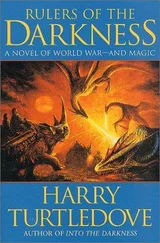Harry Turtledove - Over the Wine-Dark Sea
Здесь есть возможность читать онлайн «Harry Turtledove - Over the Wine-Dark Sea» весь текст электронной книги совершенно бесплатно (целиком полную версию без сокращений). В некоторых случаях можно слушать аудио, скачать через торрент в формате fb2 и присутствует краткое содержание. Жанр: Книги. Описание произведения, (предисловие) а так же отзывы посетителей доступны на портале библиотеки ЛибКат.
- Название:Over the Wine-Dark Sea
- Автор:
- Жанр:
- Год:неизвестен
- ISBN:нет данных
- Рейтинг книги:5 / 5. Голосов: 1
-
Избранное:Добавить в избранное
- Отзывы:
-
Ваша оценка:
- 100
- 1
- 2
- 3
- 4
- 5
Over the Wine-Dark Sea: краткое содержание, описание и аннотация
Предлагаем к чтению аннотацию, описание, краткое содержание или предисловие (зависит от того, что написал сам автор книги «Over the Wine-Dark Sea»). Если вы не нашли необходимую информацию о книге — напишите в комментариях, мы постараемся отыскать её.
Over the Wine-Dark Sea — читать онлайн бесплатно полную книгу (весь текст) целиком
Ниже представлен текст книги, разбитый по страницам. Система сохранения места последней прочитанной страницы, позволяет с удобством читать онлайн бесплатно книгу «Over the Wine-Dark Sea», без необходимости каждый раз заново искать на чём Вы остановились. Поставьте закладку, и сможете в любой момент перейти на страницу, на которой закончили чтение.
Интервал:
Закладка:
Like any merchant sailor, Menedemos knew that entirely too well. He dipped his head, but said, "They've got more teeth than mice, worse luck. Come on - get the men to the oars and up the stroke. We'll see what kind of crew we've got."
"Right you are." The oarmaster shouted the whole crew to their benches and kept right on shouting once they were in their places: "We're going to push it to get to port before sundown - and so we know what we can do if pirates come after us. Give it everything you've got, boys. Rhyppapai! Rhyppai!"
Mallet met bronze in an ever-quicker rhythm. Diokles hit the bronze harder, too, so each clang seemed more urgent. The rowers didn't spare themselves. Panting, their bodies glistening with oil and sweat, their muscular arms working as if belonging to Hephaistos' automata from the Iliad, they worked like men possessed.
And the Aphrodite fairly seemed to leap ahead. She arrowed through the deep-blue water; a creamy wake streamed from her bow. After a very short time, Menedemos grew sure they would make Samos.
Diokles held the oarsmen to the sprint as long as he could, and eased off as slowly as he could. "Not too bad, captain," he said. "No, not too bad at all. And the rowing's smooth as that silk you bought. We knew we had some good men here, and this proves it."
"You're right," Menedemos answered. "I wouldn't quarrel with a single word you said. But tell me, would we have got away from a pirate ship?"
"Well . . ." The keleustes looked unhappy. "We'd've needed some luck, wouldn't we? They did get her up as fast as she'll go."
"I know they did," Menedemos said. "The trouble is, she won't quite go fast enough." The Aphrodite carried cargo, not just rowers who doubled as fighting men. She was beamier than a hemiolia or a pentekonter, too, which meant there was more of her to resist the sea than held true for their lean, deadly shapes. And she rode deeper in the water, because of her cargo and because her timbers were more waterlogged and heavier than those of pampered pirate ships, which dried out on the beach every night. Because of all that, odds were a ship full of pirates could overhaul them from behind.
"We're all right if we've got a friendly port we can run for," Diokles said.
"Of course we are. But if we don't, we're going to have to fight." Menedemos drummed his fingers on the steering-oar tiller. "I'd sooner do it ship against ship, not man against man. They'll have bigger crews than we do."
"Pirate crews mostly aren't disciplined," the keleustes observed. "They don't want to fight unless they have to. They're out to rob and kidnap, either for ransom or for slaves."
"We've got a lot of men who've put in time aboard war galleys," Menedemos said. "Once we sail west from Khios - maybe even sooner - we will work hard."
"Good," Diokles replied.
Though the sun was not far from setting when the Aphrodite glided into Samos' harbor, Menedemos had enough light to reach the quays and tie up without any trouble. A temple dedicated to Hera lay to the left, where the Imbrasos River ran down into the sea from the mountains in the island's interior. To the right was a shrine for Poseidon that looked across a seven-stadia strait to the mainland.
As longshoremen made the akatos fast to the wharf, the rowers rested at their oars, still worn with the effort they'd put forth in the sprint. One of them said the worst thing he could think of: "I'm liable to be too tired to want to go into town and screw."
"Well, if you are, I hear there are girls up in Khios, too," Menedemos said.
"Likely there are," the sailor agreed, "but I hate to waste a chance." Since Menedemos hated to waste a chance, too, he just laughed and dipped his head.
As kos lay under Ptolemaios' thumb, so Samos belonged to Antigonos. Sostratos wasn't surprised when a couple of officers in gleaming armor tramped up to the quay to inquire about the Aphrodite and where she'd been before coming to Samos. He was surprised when they started asking their questions: he could hardly follow a word they said.
"What is that gibberish?" Menedemos asked out of the side of his mouth.
"Macedonian dialect, thick enough to slice," Sostratos replied, also in a whisper. He raised his voice: "Please speak slowly, O best ones. I will gladly answer all I can understand." That might have been a lie, but the Macedonians didn't have to know it.
"Who . . . art tha?" one of them asked, his brow furrowed in concentration, his accent both rustic and archaic. Homer might have spoken like that, had he been an ignorant peasant and not a poet, Sostratos thought. The Macedonian went on, "Whence . . . art tha from?"
"This is the Aphrodite, owned by Philodemos and Lysistratos of Rhodes," Sostratos said. The officer dipped his head; he could follow good Greek even if he couldn't speak it himself. Sostratos continued, "We're for Khios, and we've stopped at Syme, at Knidos, and at Kos."
"Did you have to tell him that?" Menedemos murmured.
"I think so," Sostratos said. "Someone else may come in who saw us in port or rowing up from the island."
Mentioning Kos got the Macedonians' attention. "What be there?" demanded the one who could make a stab at real Greek. "Ships? Ptolemaios' ships? How many of Ptolemaios' ships?"
"How gross?" the other one added, and then corrected himself: "How big?"
"I wasn't watching all that closely," Sostratos answered, and proceeded to exaggerate what he had seen. No one gave him the lie; though Rhodes' shipwrights had built war galleys for Antigonos, the island inclined more toward Ptolemaios. Rhodes shipped a lot of Egyptian grain all over the Hellenic world.
Sostratos didn't exaggerate enough to make the Macedonians serving Antigonos suspect him - only enough to give them long faces. They spoke back and forth between themselves; he understood not a word. Then, to his relief, they left.
Beside him, Menedemos let out a glad sigh to match his own. "I thought they were going to jump out of their corselets when you started talking about Ptolemaios' sixes and sevens at Kos," Sostratos' cousin said.
"So did I," Sostratos said. "I wanted to give them something to think about - something that wasn't quite true, but sounded as if it could be."
"Well, you hit the nail on the head," Menedemos told him. "If that doesn't set Antigonos' carpenters building like maniacs, to the crows with me if I know what would."
"I wouldn't mind - but where will it stop?" Sostratos wondered. "If you can build sevens, are nine better? What about thirteens, or maybe seventeens?"
Menedemos shrugged. "Not my worry. Not Rhodes' worry, either, I shouldn't think. How many rowers would you need in a seventeen?" He held up a warning hand. "No, don't go trying to figure it out, by the gods. I don't want to know, not exactly. However many it is, Rhodes might be able to man one or two of them. No more, I'm sure."
He was stretching things; but not by that much. He did persuade Sostratos not to finish the calculation he had indeed started. Instead, Sostratos asked, "You don't intend to do much in the way of trading here, do you?"
His cousin tossed his head. "Not much point to it: ordinary wine and plain pottery. I mostly wanted the anchorage." Menedemos hesitated. "If we could get our hands on those statues in Hera's temple, though, they'd bring a pretty price in Italy, don't you think?"
"Myron's Zeus and Athena and Herakles?" Sostratos laughed. "I'm sure they would. But remember, Ikaria's close by, and it got its name because Ikaros fell to earth there after flying too close to the sun. You'd fall and fail if you tried to get those statues, too."
Menedemos laughed. "I know. Had you worried there, didn't I?" Before Sostratos could answer, the peacock screeched. Menedemos snapped his fingers. "That reminds me - time to make ourselves a little money. Do you want to show people the peafowl?"
Читать дальшеИнтервал:
Закладка:
Похожие книги на «Over the Wine-Dark Sea»
Представляем Вашему вниманию похожие книги на «Over the Wine-Dark Sea» списком для выбора. Мы отобрали схожую по названию и смыслу литературу в надежде предоставить читателям больше вариантов отыскать новые, интересные, ещё непрочитанные произведения.
Обсуждение, отзывы о книге «Over the Wine-Dark Sea» и просто собственные мнения читателей. Оставьте ваши комментарии, напишите, что Вы думаете о произведении, его смысле или главных героях. Укажите что конкретно понравилось, а что нет, и почему Вы так считаете.












